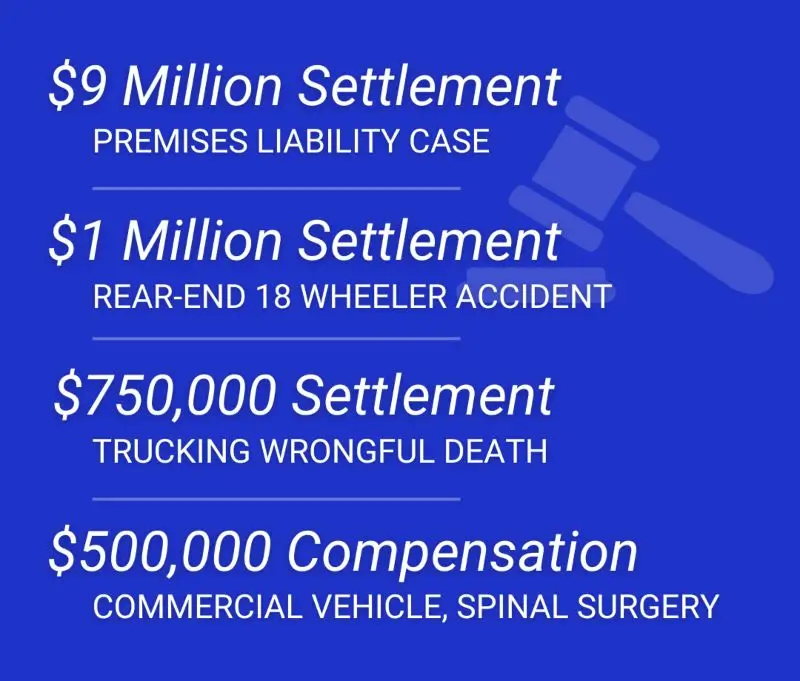Dealing with insurance companies after an accident can be frustrating, especially when you receive a settlement offer that seems far too low. Many people wonder why their insurance company is lowballing them. Understanding the reasons behind these offers can help you manage the negotiation process more effectively and achieve a fair settlement.
Understanding Lowball Offers
A lowball offer from an insurance company is an initial settlement proposal that is significantly less than what you might expect to cover your damages and losses. This tactic is often used by insurance companies for various reasons, all aimed at minimizing their payout.
Profit Motive
Insurance companies are businesses, and like any business, their primary goal is to make a profit. By offering a lower settlement, they reduce the amount they have to pay out on claims, and this directly impacts their bottom line. The less they pay in settlements, the more profit they can retain. This profit motive is a fundamental reason behind lowball offers.

Claim Volume and Cost Control
Insurance companies handle a vast number of claims daily. To manage this high volume efficiently, they often implement cost control measures, offering low initial settlements as one such measure.By keeping payouts low, they can handle a large number of claims without significantly impacting their financial resources.
Testing the Claimant’s Resolve
Insurance companies sometimes make lowball offers to test how desperate or determined the claimant is. They know that some individuals, especially those in immediate need of money, might accept a low offer simply to resolve the matter quickly. This tactic exploits the financial pressures many people face after an accident, including medical bills and lost wages.
Lack of Knowledge
Insurance companies also count on the fact that many claimants are not fully aware of the true value of their claims. Without a clear understanding of the fair compensation amount, claimants might accept a low offer, believing it to be reasonable. This lack of awareness is a significant factor that insurance companies use to their advantage.
Complexity of the Claims Process
The claims process can be complex and intimidating, particularly for those unfamiliar with it. Insurance companies might use this complexity to their advantage, hoping the claimants will settle for less rather than endure a prolonged and stressful negotiation process. They might present the process as more complicated than it is, encouraging quicker, lower settlements.
Delay Tactics
Delaying tactics are another strategy used to pressure claimants into accepting low offers. By dragging out the claims process, insurance companies can create additional stress and financial strain for the claimant. This pressure can lead some individuals to accept a low settlement just to end the ordeal sooner.
Denying Or Minimizing Liability
Insurance adjusters might attempt to minimize or deny liability altogether as a way to justify a lowball offer. By disputing the severity of injuries or the extent of damage, they can argue for a lower payout. This approach often involves disputing medical reports, seeking second opinions, or using technicalities to reduce the perceived value of the claim.
Misleading Initial Offers
An initial lowball offer might be presented as a standard or generous settlement. Insurance companies might use language that makes the offer seem more favorable than it is. This tactic relies on the claimant’s lack of experience with insurance claims, leading them to accept the first offer without negotiations.
Pressure to Settle Quickly
Insurance adjusters often pressure claimants to settle quickly, emphasizing the convenience of an immediate payout. This pressure can be particularly effective for those facing urgent financial needs. Quick settlements, however, often come at the cost of receiving fair compensation for long-term damages and future expenses.
Common Scenarios For Lowball Offers
Lowball offers can occur in various scenarios. Understanding these can help you anticipate and counteract them effectively:
- Minor Accidents – In cases of minor accidents, insurance companies might assume that claimants will not go through the trouble of challenging a low offer. They may offer a settlement that barely covers immediate expenses, expecting the claimant to accept it out of convenience.
- Disputed Liability – When liability is not clear cut, insurance companies might lowball their offers to minimize risk. They might hope that claimants will accept a lower amount rather than engage in a lengthy battle to prove fault.
- High Medical Expenses – If an accident results in high medical costs, insurance companies might try to minimize their payout by offering less than what is needed. They may argue that some treatments are unnecessary or not related to the accident.
- Totaled Vehicles – For cases where a car is totaled, a lowball offer might not fully account for the vehicle’s market value. Insurance companies might use depreciation and other factors to justify a lower payout.
Steps to Counter Lowball Offers
Understanding why insurance companies make lowball offers is the first step in countering them. Here are several strategies to help you negotiate a fair settlement:
- Document Everything – Keep detailed records of all expenses related to the accident, including medical bills, repair costs, and any other losses. Assembling comprehensive documentation strengthens your case and provides clear evidence of the damages incurred.
- Get Multiple Estimates – For property damage such as a lowball offer for a totaled, car, obtain multiple repair estimates. This can help demonstrate the true cost of repairs and counter any low offers based on undervalued damage assessments.
- Consult Professionals – Seeking advice from legal and medical professionals can provide you with a more accurate evaluation of your claim. Lawyers and doctors can offer insights into the long-term impact of your injuries and the fair compensation required to cover all associated costs.
- Be Patient – Avoid accepting the first offer, no matter how tempting it might seem. Patience is key in negotiations, so take the time to review all aspects of the offer and compare it to the documented evidence of your losses.
- Understand Your Insurance Policy – Familiarize yourself with the terms of your insurance policy. Knowing what is covered and the limits of your coverage can help you advocate more effectively during negotiations.
- Negotiate – Don’t hesitate to negotiate the offer. Counter with your documented expenses and any professional valuations you have obtained but be prepared for several rounds of negotiation before reaching an acceptable settlement.
- Seek Legal Representation – If negotiations stall or the insurance adjuster is trying to lowball persistently, consider hiring a personal injury attorney. An experienced lawyer can handle negotiations on your behalf and is often more successful in securing higher settlements.
- Request a Justification – Ask the insurance company to provide a detailed justification for their lowball offer. This can help you understand their reasoning and address any specific points they raise in your counter offer.
- Prepare a Demand Letter – A well-drafted demand letter can clearly outline your position, the extent of your damages, and the compensation you seek. This formal document demonstrates your seriousness and can be an effective negotiation tool.
- Remain Professional – Throughout the negotiation process, maintain a professional and calm demeanor. Emotional reactions can undermine your position and make it easier for the insurance company to justify its lowball offer.
The Role of Legal Support
Hiring a personal injury lawyer can be one of the most effective ways to counter lowball offers. Lawyers have the expertise and experience to navigate complex insurance claims and negotiate assertively on your behalf. They understand the tactics used by insurance companies and can provide valuable guidance throughout the process. Your lawyer can also help you gather and present evidence to support your claim, calculate the full extent of your damages, and handle all communications with the insurance company. Their involvement can significantly increase the likelihood of achieving a fair settlement.
Long-Term Consequences of Accepting a Lowball Offer
Accepting a lowball offer might provide immediate financial relief, but it can have long-term consequences. A settlement that doesn’t adequately cover your expenses can leave you struggling with ongoing medical bills, lost wages, and other financial burdens. Once you accept a settlement, you typically waive your right to pursue further compensation. This means you can’t seek additional funds if your injuries worsen or if you discover new damages related to the accident.
Conclusion
Receiving a lowball insurance settlement offer can be frustrating, but understanding the tactics behind it can empower you to respond effectively. Insurance companies use these offers to minimize their payouts and maximize profits. You can work towards achieving a fair settlement by recognizing the signs of lowball offers and employing strategies to counter them.
Patience, thorough documentation, and professional advice are your best tools in this process. While the negotiations might be lengthy and challenging, staying informed and persistent increases your chance of receiving compensation that accurately reflects your damages and losses. Remember, the first offer is rarely the best one, and being prepared to negotiate can make a significant difference in the outcome of your claim. Whether you choose to negotiate on your own or hire a lawyer, being proactive and informed will help you achieve the compensation you deserve.
Don’t Accept A Lowball Offer
If you’ve been involved in an accident, you may need professional representation to obtain fair and equitable compensation. The Nava Law Group, P.C., understands that each case is distinct and deserves a customized strategy. By providing experienced legal services and passionate support, we can help you and your family address financial strains and secure the necessary funds for full recovery. Our lawyers are experts at winning cases and will work tirelessly to make sure that you get the legal representation you need. To schedule a free consultation for your case, contact us via our website or call our offices at 713-661-9900.








